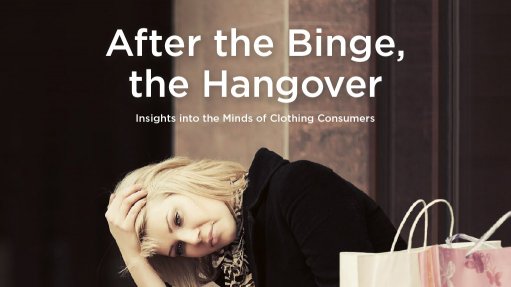
Consumers are no longer shopping because they need something. On the contrary: younger people in particular shop despite already having too much, longing for fulfillment and encouraged by social media and the ease of online shopping. However, shopping doesn’t make people happy as the excitement only provides a temporary fix.
A new survey, commissioned by Greenpeace, of the shopping habits of people in Europe and Asia finds that regularly buying too many clothes, shoes, bags and accessories has become an international phenomenon. This is especially striking in China and Hong Kong, but is also widespread in Europe, with up to half of consumers buying more clothes than they need and use.
Overconsumption of fashion is now deeply entrenched in our everyday culture, both in old European economies and in emerging ones such as China. In many ways, China is currently leading this trend, with more than half of Chinese consumers owning more clothes and bags than they need. Almost half of Chinese consumers buy more than they can afford – and more than makes them happy, and around 40 percent qualify as excessive shoppers, shopping compulsively more than once a week. Young, high-income women are the most vulnerable. The spread of online shopping and social media makes people even more susceptible to overconsumption.
These people are not shopping because they need something new – their motivation is the longing for excitement, satisfaction and confidence in front of others. Shoppers also seek to release stress, kill time and relieve boredom.
However, shopping does not make them happy; people already own too much and they know it. Around 50 percent report that their shopping excitement wears off within a day. A third of the East Asians feel even more empty and unfulfilled afterwards. They also seem to know they are on the wrong path; around half of consumers are hiding their purchases from others, fearing accusations of wasting money or other negative reactions.
Shopping behaviour is widely influenced by people’s social environment and media consumption. Social media platforms like Instagram, Pinterest, Facebook or WeChat in China are driving shopping mania, especially among young digitally connected East Asians. Browsing fashion blogs or following friends and celebrities triggers even more buying. After excessive shopping people experience regular tiredness and boredom – the binge is followed by a hangover.
Survey by Greenpeace